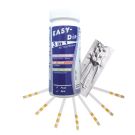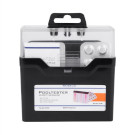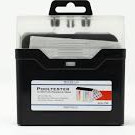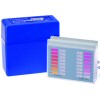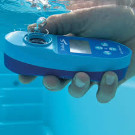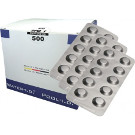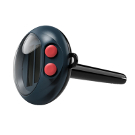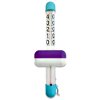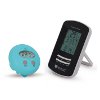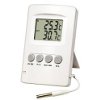Newsletter
PoolStore no longer use Facebook or Twitter. To get the latest news, offers and top tips please sign up for our newsletter.
Trusted Merchant

Trustpilot
We are rated Excellent on Trustpilot. 4.7 stars.
We joined Trustpilot in Spring 2023.
Pool Chemicals » Swimming Pool Test Kits
Swimming Pool Water Testing
Testing the pool water is something that all pool owners must do on a regular basis. Pool water testing can be done by a quick easy method or a slower, more technical method. All pool water tests involve a test reagent chemical reacting with the chemical in your water you are testing for and a colour change taking place. Measuring and assessing how much of a colour change there has been is at the core of the pool water test.
Pool water testing the quick way
The quick and easy way to test your pool water is by using test strips. These are small plastic strips with pads on them. Each pad is impregnated with a test reagent chemical that reacts with the pool water and changes colour. On the side of the pack is a colour chart and you simply compare the colour on the pad with the colour on the chart to get your test result. The strips have either 3 or 5 pads on them for different chemical tests. The accuracy of the test is compromised by ease and speed. If you want a more accurate test you need a pool water testing kit.
Pool water testing the slow way.
Test strips are great but if you want a quick check but if you want a more accurate assessment of your water quality you need to use a testing kit. The cheapest basic test kit has two plastic tubes that hold 10ml of water with a colour chart next to them. You take a water sample from your pool and then drop in to the sample a testing tablet which looks like a pill. Shake the tester or crush the pill to make it disolve in the water and you will see the water sample change colour. Compare the colour change to the colour charts and assess what the chemical level is. This type of tester is a called a comparitor testing kit. The kits come with a full set of testing tablets.
Digital and Electronic pool water testing.
Both of the above methods involve you the pool owner looking at the colours and deciding how the colour compares to the colour chart provided. A more accurate way to assess the colour change is to get a machine to "read" the colours for you. The electronic pool testing kits shine a beam of light through the sample and read the colour on a sensor. They then deliver their assessment in the form of a digital read out on a screen. This takes out all the guess work from the comparitor test kit. The chemical reagent can be added to the water by dropping a pill in the sample or by putting a strip in the water. This time the pad on the strip is impregnated with the test reagent and it comes off the pad in to the water to create the colour change.
What do you need to test for in your pool?
The two main things tests that you must test your pool water for are Chlorine level and pH Level. For more information on why you test for pH see the section on pool pH. .
In a swimming pool Chlorine comes in three types - free chlorine, combined chlorine and total chlorine. Most domestic pool owners only need to test for free chlorine but testing for combined chlorine is worth doing from time to time. The test for Chorine uses DPD tablets. DPD tablets come in 4 different types with the very sensible names of DPD No.1, DPD No. 2, DPD No. 3 and DPD No. 4. DPD one tests for free chlorine. DPD four tests for total chlorine but if the sample already has DPD one in it then adding DPD three makes the test up to DPD four. So you might typically take a DPD one test, note the level for free chlorine and then add a DPD three to the same sample. You will see a new colour change and then read the combined chlorine level. Deduct the first reading (free chlorine) from the second (total chlorine) and that will give you the combined chlorine.
The pool water's pH is tested for using a Phenol Red test tablet. The tablet disolves in the water sample turning the water anything from yellow to red. The degree of colour change establishes the pH of the water.
Testing the water's Total Alkalinity level is important but not needed as frequently.
The table below shows the ideal ranges for various test parameters, how frequently you should take the test and which test kits can carry out the test.
| Test | Ideal Range | Frequency | Test Strips | Test Kit | Electronic | ||||||
|---|---|---|---|---|---|---|---|---|---|---|---|
| Free Chlorine | 0.3 to 1.5 ppm | daily | All | All | Yes | ||||||
| pH | 7.2 to 7.4 | daily | All | All | yes | ||||||
| Combined | Less than | weekly | No | All | Yes | ||||||
| Chlorine | 0.3ppm | - | - | - | - | ||||||
| Total Alkalinity | 80 to 120 ppm | monthly | All | 3 Way | Yes | ||||||
| Total Hardness | 250 to 450 ppm | monthly | 5 in 1 | No | Yes | ||||||
| Cyanuric Acid | 30 to 80 ppm | weekly | 5 in 1 | No | Yes |

